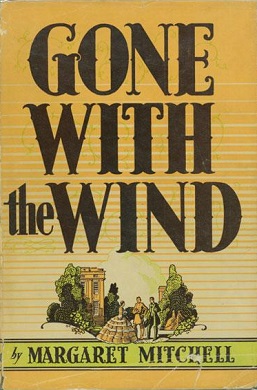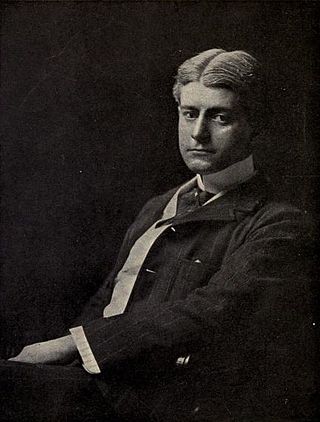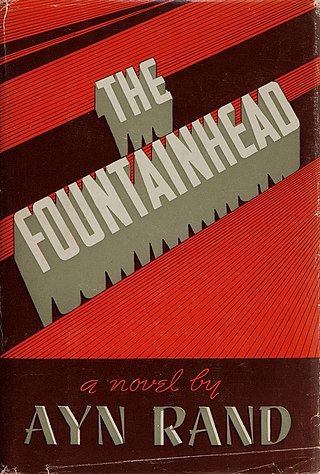
Gone with the Wind is a novel by American writer Margaret Mitchell, first published in 1936. The story is set in Clayton County and Atlanta, both in Georgia, during the American Civil War and Reconstruction Era. It depicts the struggles of young Scarlett O'Hara, the spoiled daughter of a well-to-do plantation owner, who must use every means at her disposal to claw her way out of poverty following Sherman's destructive "March to the Sea." This historical novel features a coming-of-age story, with the title taken from the poem "Non Sum Qualis eram Bonae Sub Regno Cynarae", written by Ernest Dowson.

Sense and Sensibility is the first novel by the English author Jane Austen, published in 1811. It was published anonymously; By A Lady appears on the title page where the author's name might have been. It tells the story of the Dashwood sisters, Elinor and Marianne as they come of age. They have an older half-brother, John, and a younger sister, Margaret.

Jane Eyre is a novel by the English writer Charlotte Brontë. It was published under her pen name "Currer Bell" on 19 October 1847 by Smith, Elder & Co. of London. The first American edition was published the following year by Harper & Brothers of New York. Jane Eyre is a bildungsroman that follows the experiences of its eponymous heroine, including her growth to adulthood and her love for Mr Rochester, the brooding master of Thornfield Hall.

Enoch Arnold Bennett was an English author, best known as a novelist, who wrote prolifically. Between the 1890s and the 1930s he completed 34 novels, seven volumes of short stories, 13 plays, and a daily journal totalling more than a million words. He wrote articles and stories for more than 100 newspapers and periodicals, worked in and briefly ran the Ministry of Information during the First World War, and wrote for the cinema in the 1920s. Sales of his books were substantial, and he was the most financially successful British author of his day.

Emma is a novel written by English author Jane Austen. It is set in the fictional country village of Highbury and the surrounding estates of Hartfield, Randalls and Donwell Abbey, and involves the relationships among people from a small number of families. The novel was first published in December 1815, although the title page is dated 1816. As in her other novels, Austen explores the concerns and difficulties of genteel women living in Georgian–Regency England. Emma is a comedy of manners.

Little Women is a coming-of-age novel written by American novelist Louisa May Alcott, originally published in two volumes in 1868 and 1869. The story follows the lives of the four March sisters—Meg, Jo, Beth, and Amy—and details their passage from childhood to womanhood. Loosely based on the lives of the author and her three sisters, it is classified as an autobiographical or semi-autobiographical novel.

Benjamin Franklin Norris Jr. was an American journalist and novelist during the Progressive Era, whose fiction was predominantly in the naturalist genre. His notable works include McTeague: A Story of San Francisco (1899), The Octopus: A Story of California (1901) and The Pit (1903).

The Fountainhead is a 1943 novel by Russian-American author Ayn Rand, her first major literary success. The novel's protagonist, Howard Roark, is an intransigent young architect who battles against conventional standards and refuses to compromise with an architectural establishment unwilling to accept innovation. Roark embodies what Rand believed to be the ideal man, and his struggle reflects Rand's belief that individualism is superior to collectivism.

Sir Thomas Henry Hall Caine, usually known as Hall Caine, was a British novelist, dramatist, short story writer, poet and critic of the late 19th and early 20th century. Caine's popularity during his lifetime was unprecedented. He wrote 15 novels on subjects of adultery, divorce, domestic violence, illegitimacy, infanticide, religious bigotry and women's rights, became an international literary celebrity, and sold a total of ten million books. Caine was the most highly paid novelist of his day. The Eternal City is the first novel to have sold over a million copies worldwide. In addition to his books, Caine is the author of more than a dozen plays and was one of the most commercially successful dramatists of his time; many were West End and Broadway productions. Caine adapted seven of his novels for the stage. He collaborated with leading actors and managers, including Wilson Barrett, Viola Allen, Herbert Beerbohm Tree, Louis Napoleon Parker, Mrs Patrick Campbell, George Alexander, and Arthur Collins. Most of Caine's novels were adapted into silent black and white films. A. E. Coleby's 1923 18,454 feet, nineteen-reel film The Prodigal Son became the longest commercially made British film. Alfred Hitchcock's 1929 film The Manxman, is Hitchcock's last silent film.
Naturalism is a literary movement beginning in the late nineteenth century, similar to literary realism in its rejection of Romanticism, but distinct in its embrace of determinism, detachment, scientific objectivism, and social commentary. Literary naturalism emphasizes observation and the scientific method in the fictional portrayal of reality. Naturalism includes detachment, in which the author maintains an impersonal tone and disinterested point of view; determinism, which is defined as the opposite of free will, in which a character's fate has been decided, even predetermined, by impersonal forces of nature beyond human control; and a sense that the universe itself is indifferent to human life. The novel would be an experiment where the author could discover and analyze the forces, or scientific laws, that influenced behavior, and these included emotion, heredity, and environment. The movement largely traces to the theories of French author Émile Zola.

Song and Dance is a musical comprising two acts, one told entirely in "Song" and one entirely in "Dance", tied together by a unifying love story.

Persuasion is the last novel completed by the English author Jane Austen. It was published on 20 December 1817, along with Northanger Abbey, six months after her death, although the title page is dated 1818.

The House of Mirth is a 1905 novel by American author Edith Wharton. It tells the story of Lily Bart, a well-born but impoverished woman belonging to New York City's high society in the 1890s. The House of Mirth traces Lily's slow two-year social descent from privilege to a lonely existence on the margins of society. In the words of one scholar, Wharton uses Lily as an attack on "an irresponsible, grasping and morally corrupt upper class."

Zona Gale, also known by her married name, Zona Gale Breese, was an American novelist, short story writer, and playwright. She became the first woman to win the Pulitzer Prize for Drama in 1921. The close relationship she had with her parents set the tone for her writing and her personal life. Her books based upon her home town were found to be charming and had an intimate sense of realism, in which she captures the underlying feelings and motivations of her characters. All of her works were written under her maiden name, Zona Gale.

The Pit: A Story of Chicago is a 1903 novel by Frank Norris. Set in the wheat speculation trading pits at the Chicago Board of Trade Building, it was the second book in what was to be the trilogy The Epic of the Wheat. The first book, The Octopus, was published in 1901. Norris died unexpectedly in October 1902 from appendicitis, leaving the third book, The Wolf: A Story of Empire, incomplete. Together the three novels were to follow the journey of a crop of wheat from its planting in California to its ultimate consumption as bread in Western Europe.

Lady of Quality is the final Regency romance written by Georgette Heyer. Published in the UK by The Bodley Head in 1972, and by E. P. Dutton in the U. S., it was the last of her novels to be published during her lifetime.

Gertrude Barrows Bennett, known by the pseudonym Francis Stevens, was a pioneering American author of fantasy and science fiction. Bennett wrote a number of fantasies between 1917 and 1923 and has been called "the woman who invented dark fantasy".

Moby Dick is a 1930 American pre-Code film from Warner Bros., directed by Lloyd Bacon, and starring John Barrymore, Joan Bennett and Walter Lang. The film is a sound remake of the 1926 silent movie, The Sea Beast, which also starred Barrymore. It is the first film adaptation of Herman Melville's 1851 novel Moby Dick that includes a soundtrack.

Frankenstein; or, The Modern Prometheus is an 1818 novel written by English author Mary Shelley. Frankenstein tells the story of Victor Frankenstein, a young scientist who creates a sapient creature in an unorthodox scientific experiment. Shelley started writing the story when she was 18, and the first edition was published anonymously in London on 1 January 1818, when she was 20. Her name first appeared in the second edition, which was published in Paris in 1821.

Mary Wollstonecraft Shelley was an English novelist who is best known for writing the Gothic novel Frankenstein; or, The Modern Prometheus (1818), which is considered an early example of science fiction. She also edited and promoted the works of her husband, the Romantic poet and philosopher Percy Bysshe Shelley. Her father was the political philosopher William Godwin and her mother was the philosopher and women's rights advocate Mary Wollstonecraft.


















